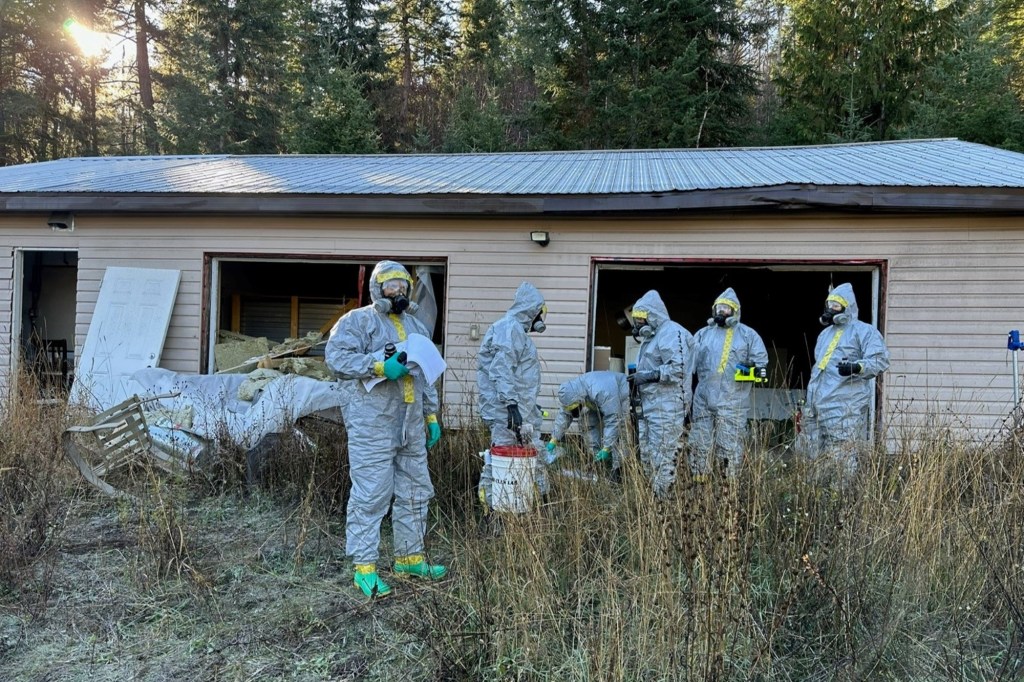“From a very young age, I understood that you have two options: either you become a cabrona or you get fucked up,” a woman in Tijuana who used to belong to a criminal gang told researchers.
“It’s not like you say, ‘Oh, I’m going to be a thug’, but you realise that you can’t go around naively, that if you want to live you have to know how to defend yourself and know who you are with. One thing leads to another, and you end up like this.”
An increasing number of women are becoming part of Mexico’s cartels and criminal groups, according to a new report by the International Crisis Group, bolstering the violent hold organized crime had on the country’s communities and further exposing young children to criminal recruitment.
Videos by VICE
Women are joining the Sinaloa Cartel, Jalisco New Generation Cartel, and Cartel del Sur in greater numbers, according to the report’s author Angélica Ospina-Escobar, and in a variety of roles including as car thieves, drug salespoint managers, supervisors, assassins and coordinators.Real numbers are elusive, but estimates in the report suggest that Mexican criminal organizations recruit roughly 7,000 members per year, and that women make up between five and eight percent of that – between 350 to 560 annually.
Gender stereotypes that make women less suspicious of wrongdoing than men help them to go under the radar in public crowds and public settings, and draw less attention from the police and military who head Mexico’s organized crime crackdown, says the report. And it’s their errant male partners or drug use that generally first brings them into contact with the crime world, said Ospina-Escobar.
“The opportunity to obtain greater autonomy and, in some cases, wield power is alluring” for women who live in Mexico, which is plagued by gender-based violence and poverty, as well as widespread injustice.
“It is difficult to maintain this dichotomy of victim and victimizer because life is super complex and we are so complex as well,” Ospina-Escobar told VICE News. “In the case of women their involvement in criminal groups is part of the cycle of violence that they experience.”
The women’s growing role in violence was one of the biggest takeaways from the report.
“The violence that women can use is because of the dynamics of the criminal groups themselves. Now they not only need to kill, they are asked to disappear the bodies, and I think that is new. It brings a different nature to their duties. To kill someone is difficult but to dismember them? It has a deep impact on their mental health and as they are recruiting these young girls at very young ages the impact on their mindset and the possibility of re-integration is more complex,” Ospina-Escobar said.
The reasons that women get into organized crime such as drug-dealing or paid killing tends to be much the same as men’s – both for the money as well as for the empowerment and status. But the impact on society tends to be different, especially in a region where the lion’s share of childcare tends to fall to women. If mothers end up behind bars, their children are also more likely to, says the report, and tend to emulate the choices their mums make and status they earn working for the cartel.
“When I went [to prison], my youngest son was 10. … When he came to visit me, I had nothing to give him. … We would see the other families eating at the tables next to us and we didn’t even have a soda. One day he came to visit me very happy and showed me that he had $15 to buy me whatever I wanted. I started to cry, and I asked him, ‘What have you done, son?’ He just hugged me and told me, ‘What I had to do to buy you a proper meal in here’. … That was when I knew he had started working as a hitman. He was 14 years old,” one woman told the researchers.
The growing role of women in the lower ranks of organized crime doesn’t bode well for Mexico’s ongoing “drug war”, which since it was declared by the then-President Felipe Calderon 2006 has claimed some 200,000 lives and led to 100,000 disappearances.
What the report failed to elaborate on was the increasing number of women who have held leadership roles in Mexico’s cartels or organizations connected to them.
Dubbed Las Patronas (the female bosses) in a VICE News investigation, and also documented in a book by historian Elaine Carey called “Women Drug Traffickers,” there are many women who have led criminal organizations from the top, in roles including transportation, logistics and money laundering, both in contemporary Mexico and since the narcotic business between the U.S. and Mexico began back in the 1920s and 1930s.
More
From VICE
-

(Photo by IVAN MEDINA/AFP via Getty Images) -

Savannah Sly, dominatrix and co-founder of sex-worker vote mobilization group, EPA United. -

(Photo via Royal Canadian Mounted Police)



